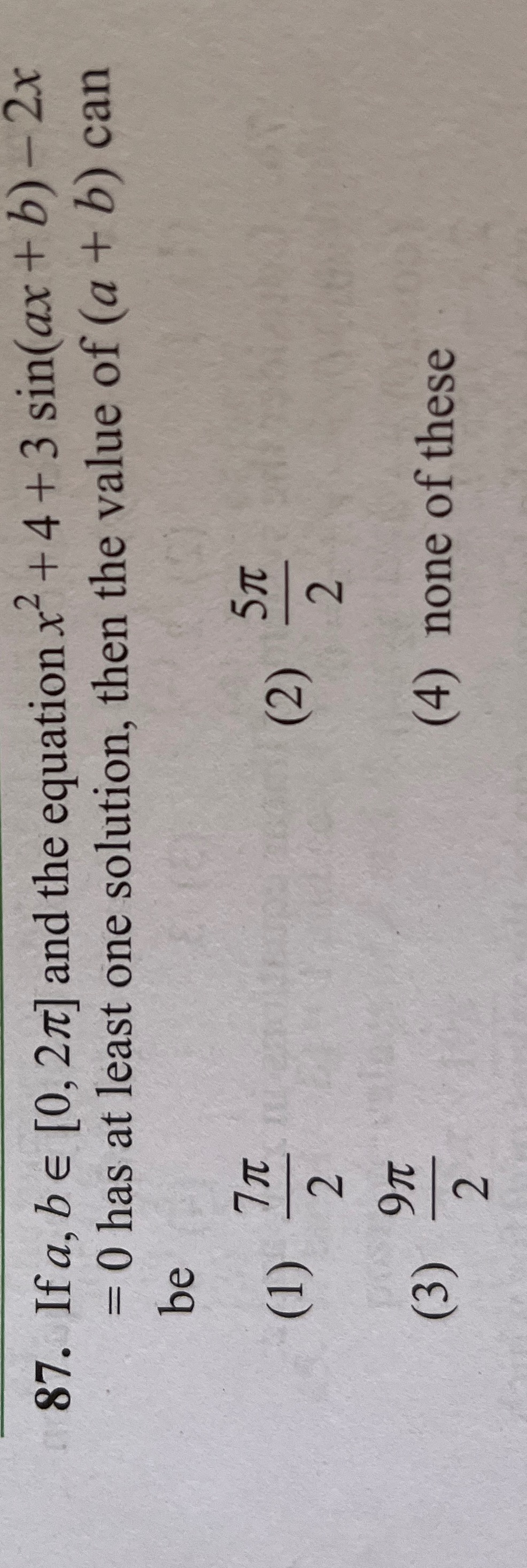Question
Question: If a, b ∈ [0, 2π] and the equation x² + 4 + 3 sin(ax + b) - 2x = 0 has at least one solution, then t...
If a, b ∈ [0, 2π] and the equation x² + 4 + 3 sin(ax + b) - 2x = 0 has at least one solution, then the value of (a + b) can be

A
27π
B
25π
C
29π
D
none of these
Answer
27π
Explanation
Solution
Given
x2+4+3sin(ax+b)−2x=0,rewrite the quadratic part by completing the square:
x2−2x+4=(x−1)2+3.Thus,
(x−1)2+3+3sin(ax+b)=0⇒(x−1)2+3(1+sin(ax+b))=0.Since (x−1)2≥0 and 1+sin(ax+b)≥0 (because sin(ax+b)≥−1), the sum can be zero only if both terms are zero. Therefore, we require:
(x−1)2=0and1+sin(ax+b)=0.The first condition gives:
x=1.The second condition gives:
sin(ax+b)=−1.At x=1, this becomes:
sin(a⋅1+b)=sin(a+b)=−1.This equation is satisfied when:
a+b=23π+2πk,k∈Z.Since a,b∈[0,2π], their sum lies in [0,4π]. The possible sums in this interval are:
23π(for k=0)and27π(for k=1).Among the provided options, only option (1) 27π is valid (note that 23π is not listed, and the other options do not produce sin(a+b)=−1).
